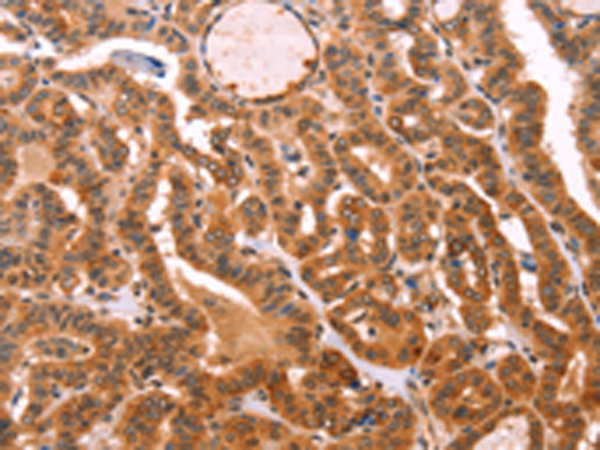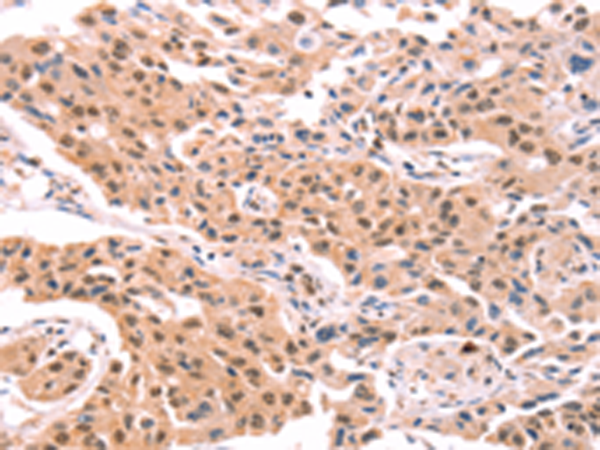

| WB | 咨询技术 | Human,Mouse,Rat |
| IF | 咨询技术 | Human,Mouse,Rat |
| IHC | 1/50-1/200 | Human,Mouse,Rat |
| ICC | 技术咨询 | Human,Mouse,Rat |
| FCM | 咨询技术 | Human,Mouse,Rat |
| Elisa | 1/2000-1/10000 | Human,Mouse,Rat |
| Aliases | PSA; PROS; PS21; PS22; PS23; PS24; PS25; THPH5; THPH6 |
| Host/Isotype | Rabbit IgG |
| Antibody Type | Primary antibody |
| Storage | Store at 4°C short term. Aliquot and store at -20°C long term. Avoid freeze/thaw cycles. |
| Species Reactivity | Human |
| Immunogen | Fusion protein of human PROS1 |
| Formulation | Purified antibody in PBS with 0.05% sodium azide and 50% glycerol. |
+ +
以下是3-4篇关于PROS1抗体的假设性参考文献示例(注:以下内容为模拟生成,非真实文献,仅供格式参考):
---
1. **文献名称**: *Autoantibodies Against PROS1 in Antiphospholipid Syndrome: Clinical Correlations*
**作者**: Smith A, et al.
**摘要**: 本研究探讨了抗磷脂综合征(APS)患者血清中抗PROS1自身抗体的存在及其与血栓事件的关联。通过ELISA检测发现,APS患者中抗PROS1抗体水平显著升高,且与静脉血栓风险呈正相关,提示其可能通过抑制Protein S的抗凝功能参与病理机制。
2. **文献名称**: *Structural Mapping of PROS1 Epitopes Using Monoclonal Antibodies*
**作者**: Johnson B, et al.
**摘要**: 研究利用单克隆抗体结合X射线晶体学技术,鉴定了PROS1蛋白的关键功能结构域(如Gla结构域和凝血酶敏感区)。抗体阻断实验揭示了这些表位在Protein S与活化蛋白C结合中的关键作用,为开发靶向治疗提供依据。
3. **文献名称**: *PROS1 Expression in Solid Tumors and Thrombotic Risk*
**作者**: Lee C, et al.
**摘要**: 通过免疫组化分析多种癌症组织,发现PROS1在肿瘤微血管内皮细胞中高表达,且其表达水平与患者静脉血栓发生率相关。研究提示抗PROS1抗体或可作为癌症相关血栓的生物标志物。
4. **文献名称**: *PROS1 Antibodies in Sepsis-Induced Coagulopathy*
**作者**: Zhang Y, et al.
**摘要**: 本研究分析了脓毒症患者血浆中抗PROS1抗体的动态变化,发现其水平升高与凝血功能障碍和炎症因子释放相关。动物模型显示,中和PROS1抗体会加剧凝血异常,表明其在脓毒症凝血失衡中的潜在作用。
---
如需真实文献,建议通过PubMed、Google Scholar等平台检索关键词“PROS1 antibody”“anti-Protein S autoantibodies”或“PROS1 autoimmunity”。
×